By Leslie Tan, Colin Tung, Lim Yong Teck, Jasmine Goh
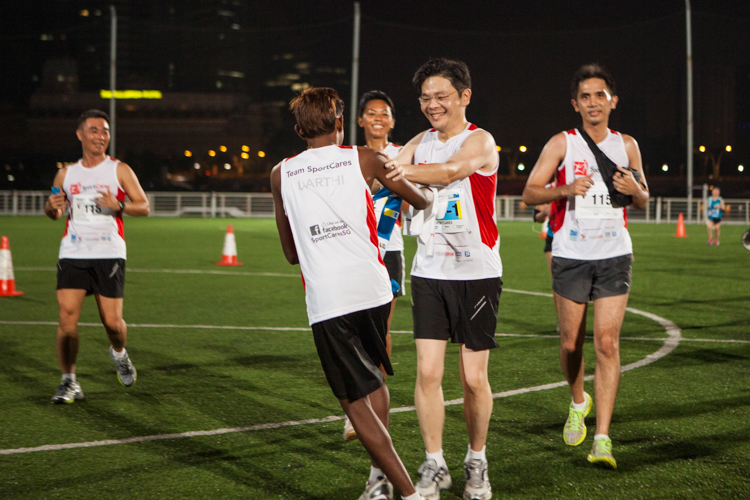
Minister Lawrence Wong passes on a cloth sash to his SportCares Foundation teammate during the Ekiden category of the 2013 Standard Chartered Marathon Singapore. (Photo courtesy of MCCY)
Lawrence Wong, 41, was elected to the Singapore Parliament at the 2011 general election. A member of the governing People’s Action Party (PAP), he is currently the Minister, Ministry of Culture, Community and Youth, and Second Minister, Ministry of Communications and Information.
Mr Wong studied at Haig Boys’ School, Tanjong Katong Secondary Technical School (the school was renamed Tanjong Katong Secondary School in 1993) and Victoria Junior College, before going on to the University of Wisconsin–Madison in the United States where he completed a Bachelor of Science degree in Economics in 1993. He subsequently obtained a Master of Arts degree in Economics at the University of Michigan–Ann Arbor, and also a Master of Public Administration degree from the Kennedy School of Government at Harvard University.
In an exclusive interview with Red Sports, he talks about National Service, foreign sports talent, the S.League, the Sports Hub, sports funding, ActiveSG, sports trends, and his personal best times for running.
Leslie Tan, Red Sports: This question is about the S.League. Attendance is tough; they struggle with that. From your point of view, does football still remain the number one sport in Singapore given the reception of the S.League, and why do we still continue to fund the S.League?
Minister Wong: It’s not just my point of view. All the surveys we have done show that it’s still the number one sport in Singapore. Don’t just take it from me. We do surveys of different sports and football is still the number one.
I would think it bears out in terms of the competitions because I would imagine that it’s probably still the one sport that can fill the entire National Stadium. Other sports are gaining in popularity and, perhaps, over time, they too can fill the National Stadium but they are not yet close to football. It’s quite clear that football is still the number one sport for the time being.
Our funding model is not just on medaling potential. If it is, then it will be a very different paradigm. That’s one criteria, but we also look at the popularity of the sport. Certainly, football gets its share of resources because it’s a popular sport.
Leslie Tan: Why do you think the attendance for S.League has fallen drastically over the years?
Minister Wong: S.League is a different challenge. I think FAS (Football Association of Singapore) has set up a task force to review the S.League. There are various reasons why I think it has declined in attendance but my own view is that they can probably can do with a smaller league, and also, very importantly, strengthen the connection between the team and the community.
Over the years, partly because of the venues (for example, Tampines Rovers don’t play in Tampines anymore) — so it’s partly a venue constraint — the connection with the community has declined.
So we should focus on getting the teams to strengthen their connection with the community.
Venues and infrastructure play a part in this. That’s why part of this plan can happen when we have a sports facilities masterplan, where we are building regional stadiums, which can be the home-ground for these teams.
Then, the teams are based in that stadium, that’s their home base, they can train and play there and they may even have a merchandise store there, they can build up their fan base by being based there. They can do a lot more to connect with the community. That will take some time but I think that’s something we can do for the S.League.
Leslie Tan: We’ve seen that school ties and school sports can at times be more visible and vibrant than at national level. Can we build on that?
Minister Wong: Yes, indeed. I would imagine it’s complementary and it’s at different levels. The national level has less of an issue. At the national level, you play at the Suzuki Cup, the stadium gets full. There’s a following for our national team.
S.League is not national; it’s slightly below national level so we need to strengthen that in the community. Then, we also have the school level which is also community-based.
Indeed, what I’ve said about the S.League is complementary to what you’ve suggested for schools, which is that, if the S.League club is connected to the community, it should be plugged in, engaging all the schools within the community, encouraging the kids to come. The S.League players can be mentoring them and that’s part of building the fan base around the community to support the S.League club.
Leslie Tan: One of the things we have noticed when we cover school sports is, Chinese play basketball, Malays play football. We see it at the national team level as well. The football team is essentially Malay with the exception of Gabriel Quak. The same thing with basketball — basically Chinese. There was an Indian Singaporean, Pathman [Matialakan], he retired about a couple of years ago. Do you think, from your vantage point, it’s been hard for races to mix in sports?
Minister Wong: I accept that there are these certain concentrations or higher proportions of certain ethnic groups in some sports, but I would like to think that sports can rise above ethnic lines, and this has always been the case in sports. You can see that from young — people playing across different races and ethnic groups, they all play sports together. I hope that this will continue. Even with our Youth Olympic football team, you see many people from different backgrounds coming to play. As they progress, it’s true that not all continue.
So I think it’s a question of some of the things we talked about earlier – where we need to give more opportunities, strengthen our progression pathways for young athletes with the potential to continue with sports even beyond a certain stage. And that’s what we’re doing now with our review of the Sports School and our high performance sports system.
And, I would say also that, even today, we do see sports transcending ethnic lines. In areas like gymnastics and swimming, you do see, for example now, Malay gymnasts and Malay swimmers, which we have not in the past. So, in a way, sports is a language that we all can speak regardless of our race, religion or background.
Leslie Tan: Every year, we cover the ‘A’ Division junior college football championship and what’s remarkable about the teams when we see them is that they are racially diverse and we thought you might like to know that.
Minister Wong: That’s very good to hear!
Leslie Tan: Just that, as they progress, the Chinese seem to take on a different attitude to playing football full time.
Minister Wong: Again, it goes back to perceptions of success, of role models and parents and families saying, ‘Look, do I support my child in his or her sporting pursuit? Or do I insist on him or her taking a more pragmatic approach and making sure that they look after their academics and career?’
Some of them drop out after the Sports School and that’s why we are reviewing our whole Sports School framework, trying to improve particularly the pathways beyond the Sports School so that we have a strong handshake from the Sports School to the tertiary institutions.
Some of it can be done through the through-train programmes or through programmes that give the athlete and the parents, importantly, the assurance that if their child continues on in sport, they can still get a degree or diploma.
So they can still get a good degree, a good diploma, a good education and, yet, at the same time, they are still able to pursue sports.
And some of these tie-ups with educational institutions can already be done locally with our own polytechnics and universities which already exist but can be improved. Some of these can be tied up with overseas universities as well, though the various types of sports scholarship.
Leslie Tan: What does the notion of Singapore as a sporting nation mean to you? If you could gaze through a crystal ball and see five years down, how would you like to see a sporting Singapore?
Minister Wong: I would think that, as a nation, if we call ourselves a sporting nation, a sporting Singapore, then we should be a society where we embrace the values of sport, where people can live more fulfilling lives through sport and, as a nation, we can be more confident and resilient as well.
On National Service and sporting heroes – an interview with Lawrence Wong (Part 1)
On foreign sports talent – an interview with Lawrence Wong (Part 2)

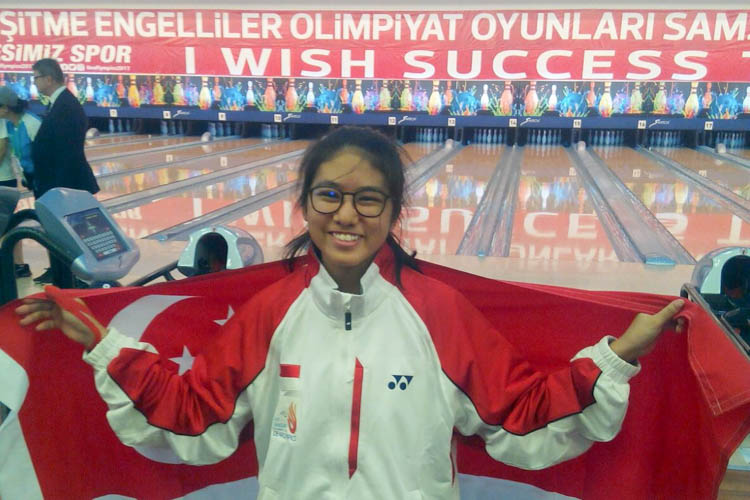
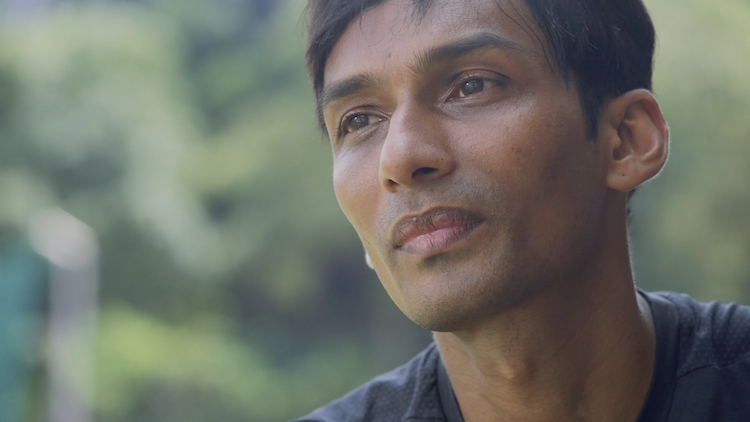
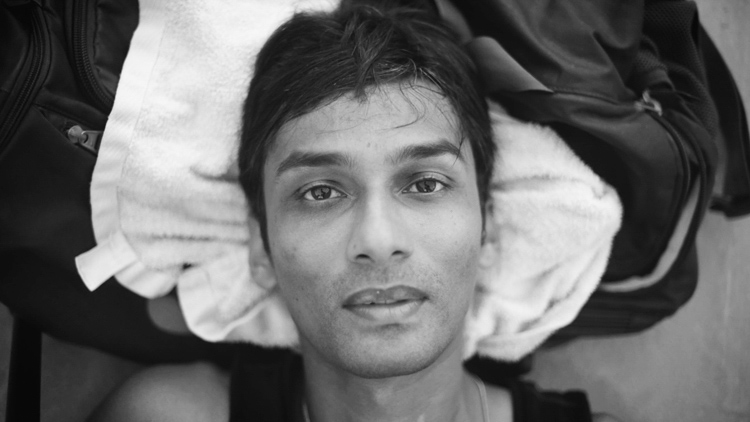
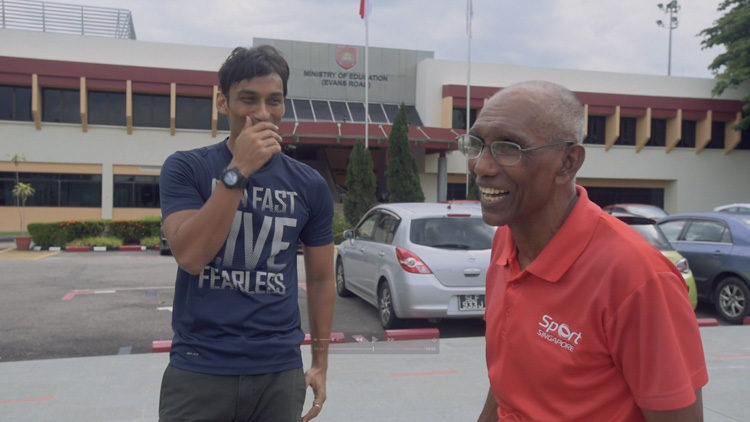
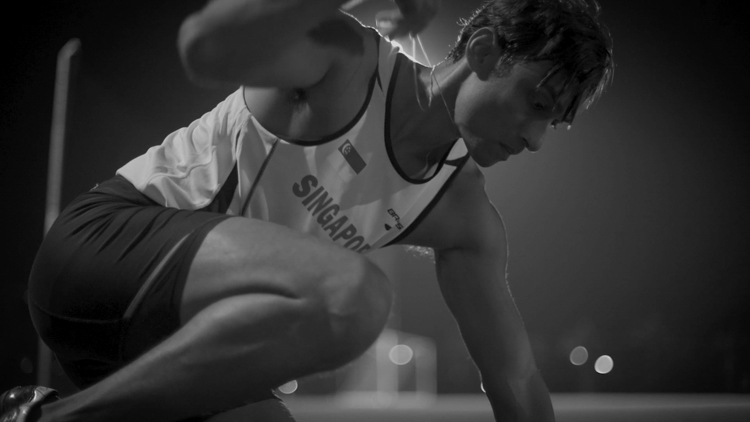
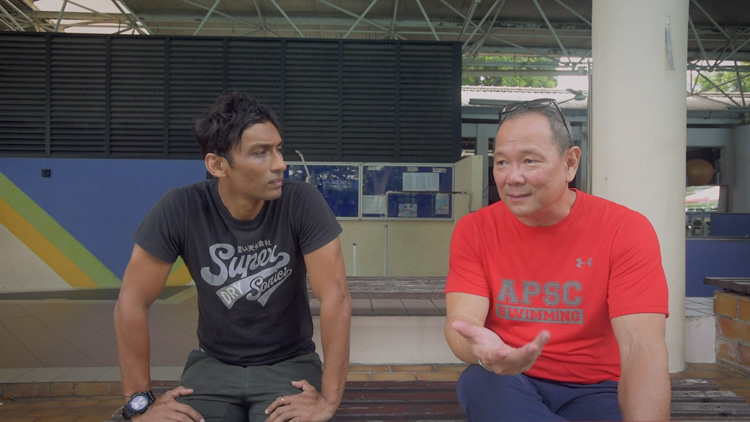
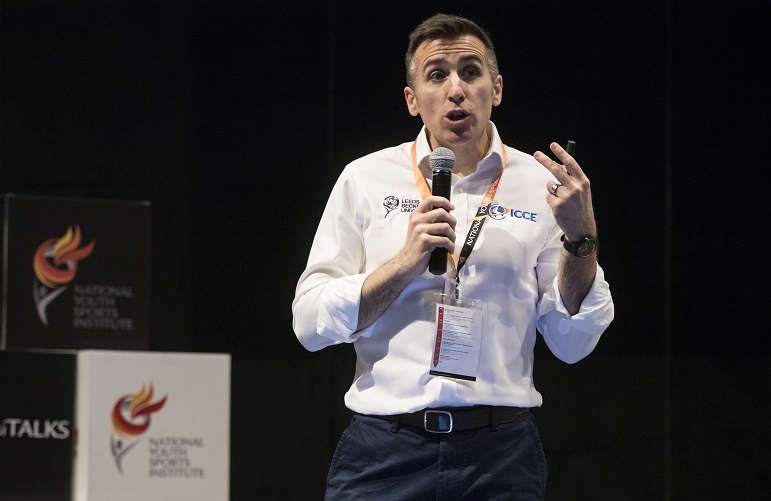
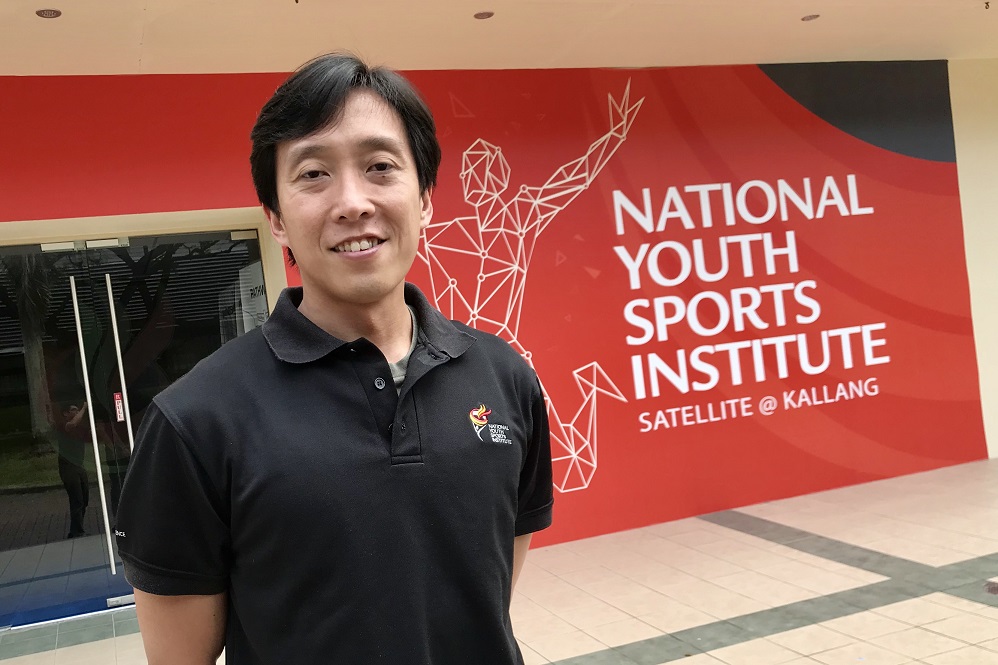
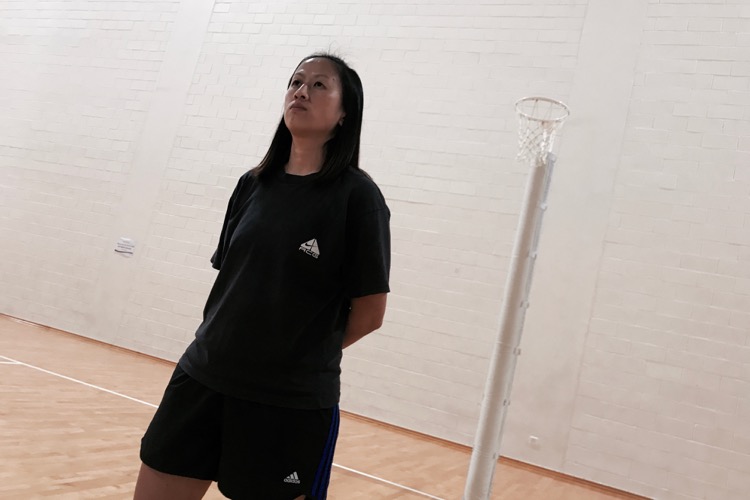
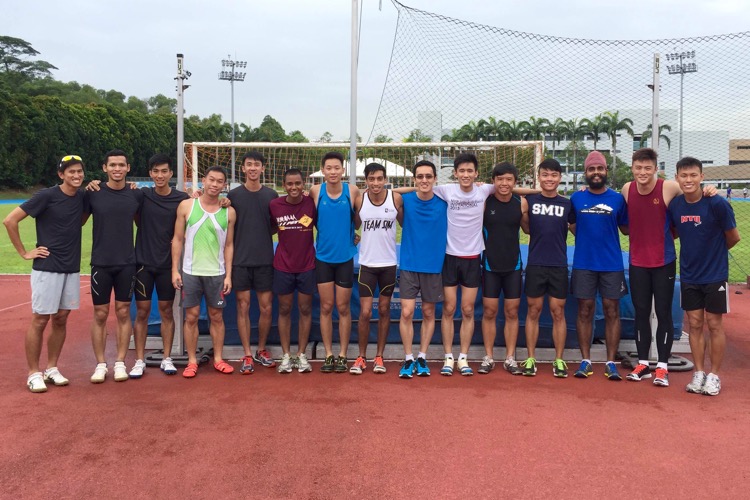
[…] On S. League and racial lines in sports – an interview with Lawrence Wong (Part 3) […]
[…] an exclusive interview with Red Sports, he talks about National Service, foreign sports talent, the S.League, the Sports Hub, sports funding, ActiveSG, sports trends, and his personal best times for […]
[…] an exclusive interview with Red Sports, he talks about National Service, foreign sports talent, the S.League, the Sports Hub, sports funding, ActiveSG, sports trends, and his personal best times for […]
[…] On S. League and racial lines in sports – an interview with Lawrence Wong (Part 3) […]
[…] On S. League and racial lines in sports – an interview with Lawrence Wong (Part 3) […]